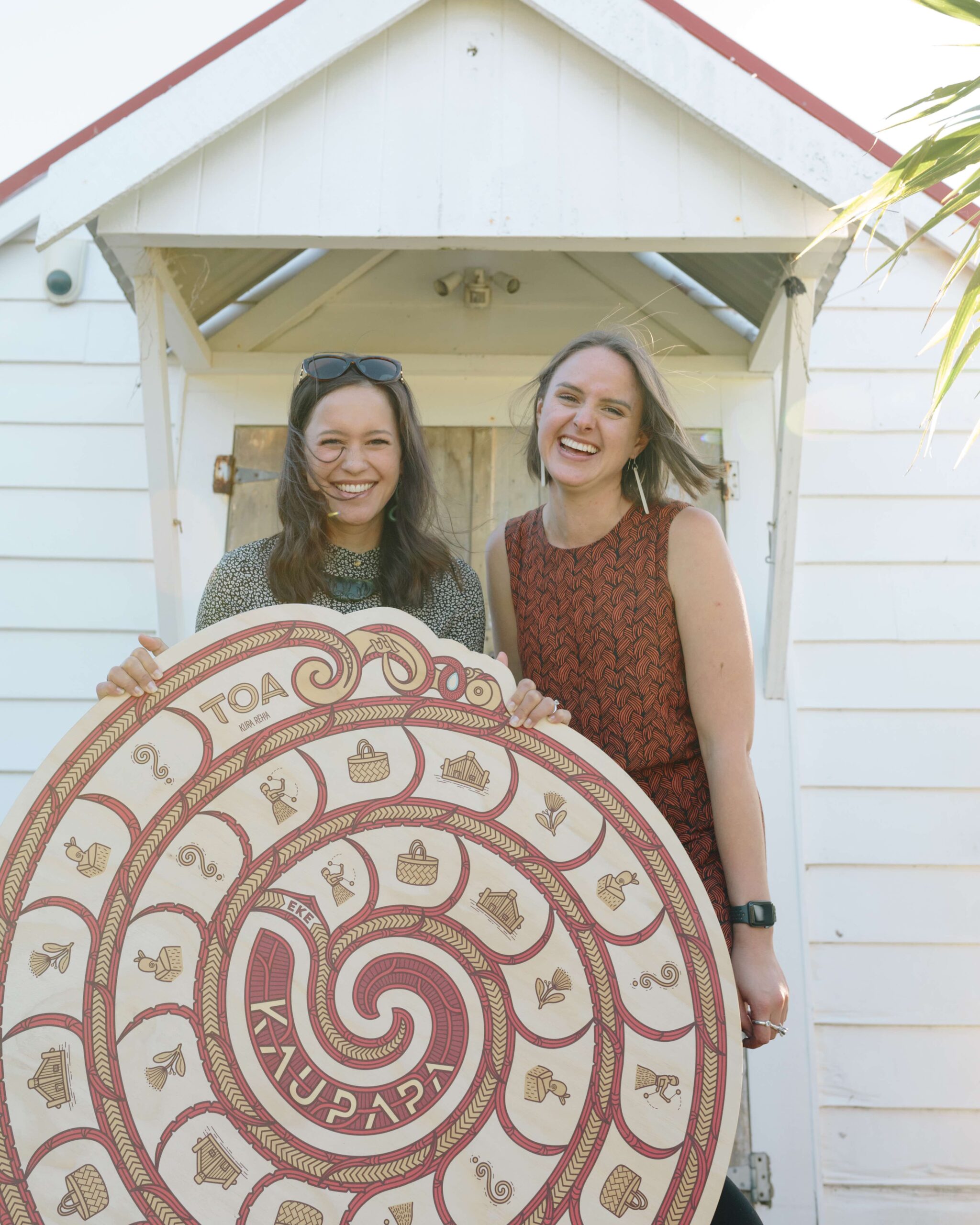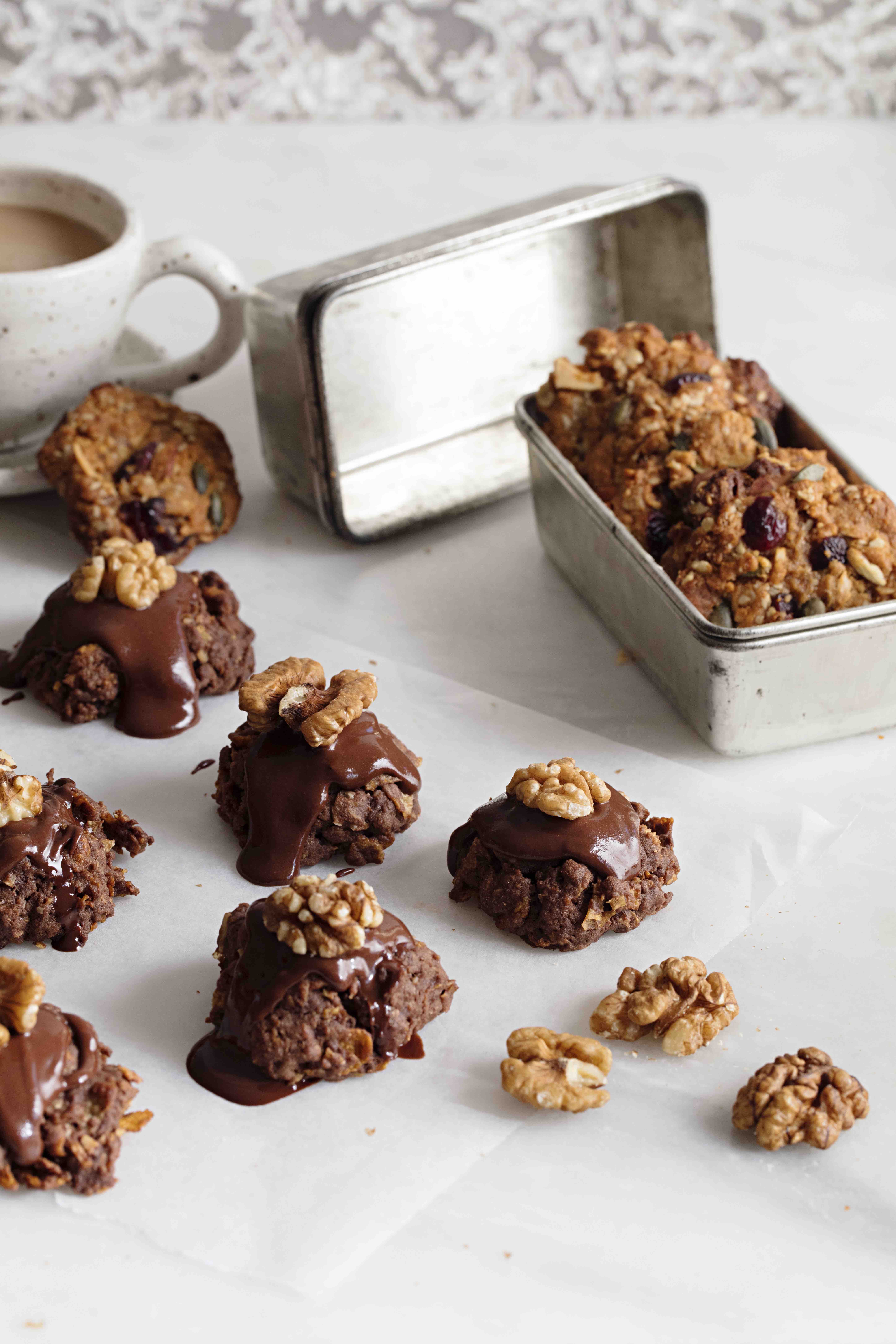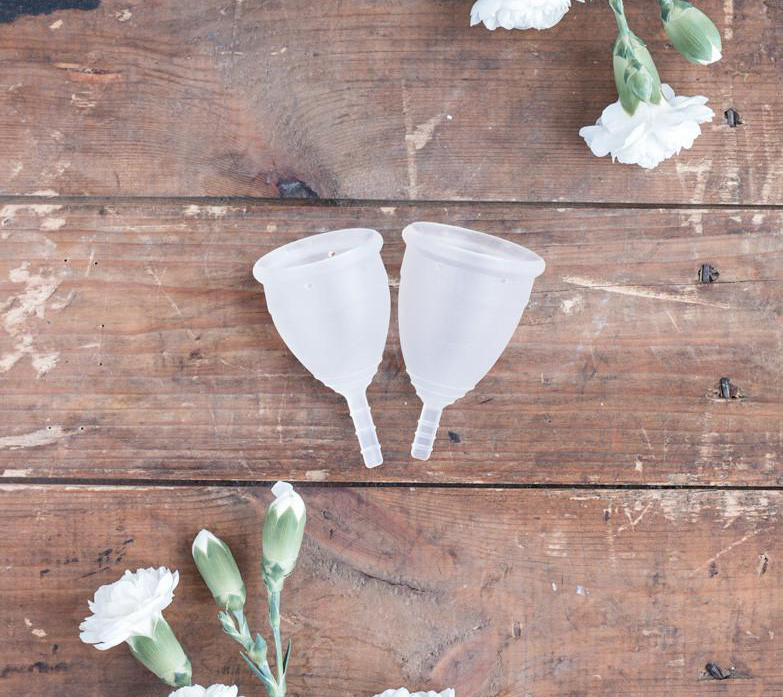Photography Matara Stokes
The wāhine behind the award-winning board game Kaupapa.
Since its launch in 2021, board game Kaupapa has won a stack of awards and been recognised for excellence in game development, player experience and accessibility, as well as for its design and sustainable packaging.
The team behind its development – co-founders Rosie Remmerswaal and Kuruho Wereta of Kura Rēhia and designer Aroha Tamihana of Maimoa Creative – are stoked that their mahi has paid off and the kēmu (game) is being enjoyed by players of all ages and language levels.
How did the development of the Kaupapa Game come about?
Rosie: Five years ago at our flat in Maraetai, we had a board game night by the fire. I was learning te reo Māori, and Kuruho and our friend Te Kahu grew up bilingual – so we started adapting the games into te reo on the fly and that’s when the seed was planted.
The real development started when we took the game to our reo classes and really felt the magic that was created by playing together. Every game ended with the question, “so… when can I have a copy?”. That’s when we realised that this game was something that Aotearoa really wanted.
Aroha: My main role was to focus on the aesthetic and user-friendly aspect of the kēmu, ensuring it aligned with the existing board design Kuruho had drawn up. There were a few hurdles to overcome in terms of figuring out the best materials to use that suited the game as well as align with the sustainability aspect of the production. I’m really stoked with the final outcome, and am proud and honoured to have my name attached to this project.
What’s its recipe for success?
Rosie: Gee, I’m guessing it’s because it’s really fun! And an easy way to use and celebrate te reo Māori at home, and a fun way to create more language learning spaces.
Aroha: I believe Kaupapa has been such a huge success due to the incredible research and mahi Rosie and Kuruho did in the many years leading up to the launch. Every little detail was thought out with such integrity, ensuring it aligned with their vision to uphold the mana of each kupu and the nuances of our beautiful language. They also spent many, many hours testing versions of the game in multiple different contexts to ensure they had thought of everything and received as much valuable feedback to feed into the final development as possible.
What do you both love most about the game and its purpose?
Aroha: I love how it brings out the cheeky, competitive, and playful side of people. So often learning a new language (or anything) is associated with memorising a list of words, handing in assessments, sitting tests, and being pushed out of your comfort zone, but this kēmu allows the learning journey to be enjoyed in an informal context that celebrates each individual level of fluency without having any expectations or pressure.
Rosie: I love the Māui cards… they’re a bit like chance cards, and change up the gameplay for a single round. I love how they create unexpected twists in the game and spark storytelling. For example, if you draw ‘Tou Tīrairaka’ then you can ‘Flit Like a Fantail’ and choose any word on every card. If you draw ‘Hopukina te Rā’ (‘Capture the Sun’), then you get two turns of the sand timer, and if you draw ‘Tuhia ki tō Rae’ it turns the game around like ‘Heads Up’.
How will you be celebrating Matariki this year?
Aroha: Every year as a whānau we try and host an intimate gathering of whānau and close friends to enjoy a hākari/feast, reflect on the past, and open up about our wins and challenges over the year, and what we look forward to. We like to end the night playing some fun kēmu too – last time it was Kaupapa that was brought out, and no doubt it will feature again in this year’s celebrations.
Rosie: Stargazing, for sure, and both my parents have their birthdays that very weekend! So I’ll be in Te Matau a Māui/Hawke’s Bay celebrating with our extended whānau.
What do you most look forward to for Matariki?
Aroha: To be honest, growing up I had no idea what Matariki was, nor did we ever do anything to celebrate it.
It’s only now as an adult that I’m more aware of its significance to Te Ao Māori, and to Aotearoa, and I am really enjoying learning how our whānau can embrace everything about it and create some traditions. Making frybread is now officially one of my Matariki traditions – as it is always a crowd favourite! Now that it is a public holiday in Aotearoa, I know there will be many more events and kaupapa put on that I am excited to attend and support.
Rosie: It seems like every year there is more to look forward to! Last year I gathered with friends for a kai, we played games and one by one, sent a wish to Hiwa-i-te-rangi. Once, we went to the ocean at night, where we lit candles for our loved ones who have passed on and said their names into the night sky. I think it’s beautiful that there are several themes: remembrance, celebrating the present and looking to the future, and it’s an opportunity to connect to ourselves, with our world and each other.
What’s been your te reo Māori journey?
Rosie: Aotearoa is the land that raised me. For my life, I acknowledge the fruits, the waters and people of Aotearoa. Being part of normalising te reo Māori is one way to honour this.
I think that learning the reo goes hand in hand with learning about Te Tiriti, about history, about my own roots and finding ways to contribute to Aotearoa being a more fair society. It also sparks a decent amount of ‘un-learning’, which I think is a good thing.
Aroha: I grew up overseas for the first 11 years of my life, separated from my Māori culture and language. Upon our return to Aotearoa, I had the strange experience of reverse culture shock, where I didn’t feel like I belonged in my own whenua. Over the years I’ve been on a humbling journey of reconnecting with my Māoritanga. A pivotal point for me was when I did a one-year full immersion course to learn te reo alongside my dad in 2015.







